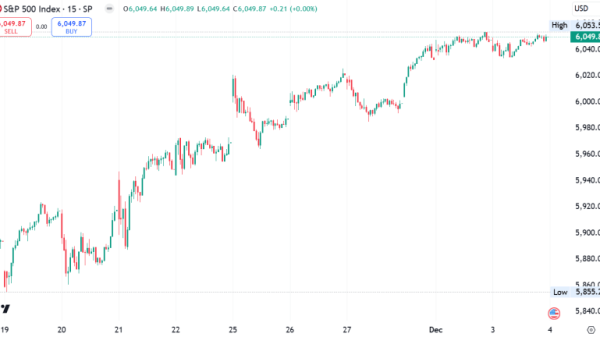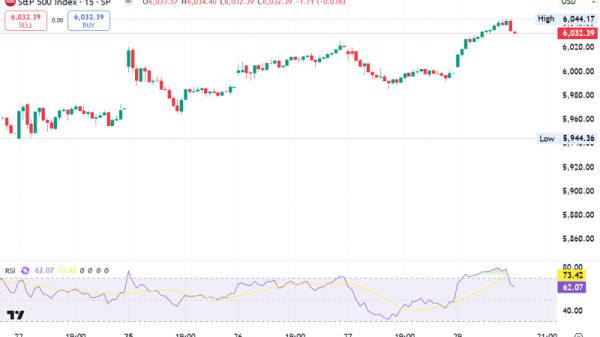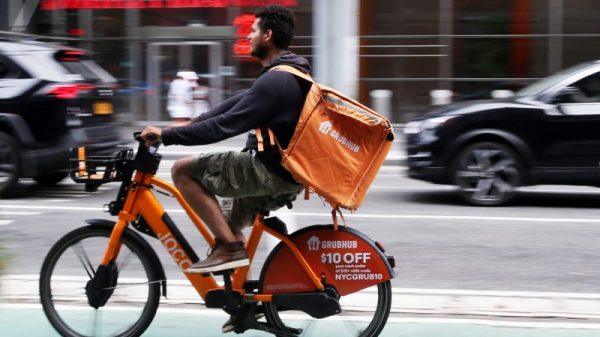Hurricane Helene’s destructive path across western North Carolina threatens to upend the fall election in the key battleground, with halted mail service disrupting absentee voting, thousands of voters cut off from polling locations and election administrators scrambling to adjust.
Even as emergency response teams continued their search for survivors of the devastating storm and airlifted food and water into remote communities, state and local election teams began the difficult task this week of assessing damage to voting machines, paper ballots and polling locations. Multiple polling locations — no one knows how many — were flooded and are unlikely to be usable on Election Day.
Especially worrisome to some officials was how to ensure voting access for those who plan to cast their ballots by mail. Many residents have temporarily left the area due to damaged homes, impassable roads and a lack of potable water, with return dates unknown.
The challenging circumstances could suppress turnout in a part of the state where nearly 1 million people cast ballots in 2020, out of nearly 6 million cast statewide. President Donald Trump defeated Joe Biden in North Carolina that year by fewer than 80,000 votes, his smallest margin of victory in any state. A Washington Post poll conducted mostly before Helene hit found that Trump holds a two-point lead over Vice President Kamala Harris, a result within the survey’s margin of error.
In 2020, Trump won the 25 western counties with federal disaster declarations with nearly 62 percent of the vote. But one of the hardest hit communities, Asheville and surrounding Buncombe County, is a Democratic stronghold that Biden won with 60 percent of voters.
With the Atlantic hurricane season spanning from June 1 to Nov. 30 each year, this is not the first time a major storm has threatened election administration. Superstorm Sandy struck New York and New Jersey just a week before the 2012 presidential election, forcing local leaders to contend with flooded polling locations and figure out how to help displaced voters cast their ballots.
Helene also wrought destruction in Florida, Georgia, South Carolina and Tennessee, but none so severe or widespread as in North Carolina.
State law in North Carolina allows anyone to ask for an absentee ballot to be mailed to a temporary home. But with the U.S. Postal Service suspending service across a wide swath of western North Carolina due to Helene’s impact, it was unclear whether those ballots would arrive — and whether they could be mailed back. Scores of roads and bridges remain closed across the region, many of them washed away entirely.
Overseas and military ballots were sent on Sept. 20 to those who requested them. Domestic absentee ballots were sent Sept. 24. That means many were probably in transit when the storm hit and potentially destroyed, said Devon Houck, who directs elections in Ashe County, on the Tennessee border. At least one post office in the county was flooded, and hundreds of mailboxes are gone, she and others said.
The Postal Service suspended service in Zip codes that are home to more than 1.3 million North Carolinians. The agency said the locations would reopen “as conditions are safe.”
“We will still hold an election and will make sure everyone gets an opportunity to vote,” Houck said. “It will just be different and harder.”
State election officials emphasized in a news release Monday afternoon that anyone who has requested an absentee ballot can choose to vote in person instead. If a ballot is lost or otherwise unaccounted for, voters can also request a new one. North Carolina runs a robust ballot-tracking system that allows voters to see when their completed ballot has arrived back at their county election headquarters.
Election headquarters in 14 affected counties were closed as of Monday. The status of one office, in far western Haywood County, was unknown to state officials due to downed communications.
“Our hearts go out to these people that we consider to be elections family,” Karen Brinson Bell, director of the state board of elections, said during an emergency meeting Monday to contend with the storm’s effects. “They are such conscientious public servants. At a time when many of them still don’t have contact with family members, and some have total losses at their own personal properties, we are trying to be as responsive to their needs as we can.”
Bell said one election worker walked five miles Monday to check on the status of the Buncombe County election office in Asheville.
Complicating efforts by the state board of elections to assist counties are recent actions by the GOP-controlled state legislature, which last year made it more difficult for the board’s staff to take emergency actions such as allowing counties to swap out one polling location for another. The legislature also changed state law to require absentee ballots to arrive in their county no later than Election Day, eliminating the prior grace period that allowed any ballot postmarked by that day to arrive up to three days later.
Bob Phillips, executive director of Common Cause North Carolina, said he hopes state lawmakers will reinstate the grace period and possibly even extend it in the wake of Helene. If they don’t, voting rights groups may seek legal intervention, he said.
“Most of western North Carolina does not have operational postal service. The sending and delivering of those absentee ballots has now been put on pause indefinitely,” he said.
A huge part of the recovery will be voter education, officials said. Many voters are cut off from the internet, cellphone networks and even grocery stores. Getting the word out about changed voting locations or how to vote by mail will be a huge challenge, they said.
“I know there will be some folks that voting is very low on their priority list right now,” said Matt Snyder, election director in western North Carolina’s Watauga County. “So what we’re hoping is that by keeping all our sites open and making available places that people can vote, that they will find the time to come to vote despite all the other things they are dealing with.”
Snyder added that finding alternate voting locations will be a challenge in a part of the country where that search is difficult at the best of times.
“We’re looking at any and all solutions, even putting up a tent if we have to somewhere,” he said.
Jacob Bogage and Clare Ence Morse contributed to this report.




































